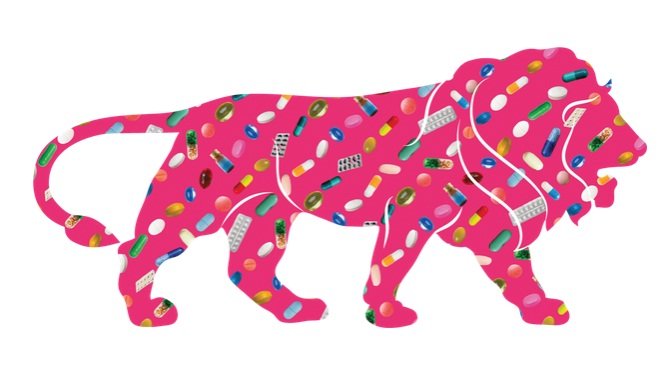
The Indian pharmaceutical industry registered a robust growth of 29 per cent in Financial Year 2015-16, as India emerged as the largest provider of generic medicines globally, a government report under the ‘Make in India’ initiative said.
“The Indian pharmaceutical industry has witnessed a robust growth in recent years growing from Rs 177,734 crore in FY 2014-15 to Rs 204,627 crore in FY 2015-16, registering a growth of 29 per cent as compared to the growth of 12 per cent from Rs 158,671 crore during FY 2013-14. The turnover of Indian pharmaceutical industry was estimated at Rs 2,04,627.1 crore in FY 2015-16,” said the Pharmaceuticals Sector Achievements Report prepared jointly by the Department of Industrial Policy and Promotion and Department of Pharmaceuticals.

According to the report, the exports of drugs, pharmaceuticals and fine chemicals was Rs 1,06,212.4 crore in 2015-16. “In the generics market, India exports 20 per cent of global generics, making it the largest provider of generic medicines globally,” it added.
The sector saw Foreign Direct Investment (FDI) equity inflows of $2.25 billion from April 2014 to March 2016, while the FDI equity inflow from April 2016 to September 2016 was $640.71 million.
Abbot Asia Holdings Ltd, UK, topped the list of major foreign investors in the sector with $447.48 million, followed by Mylan Group BV Netherlands ($372.63 million), Hospira Pte Limited, Singapore ($301.61 million), Glaxo Smithkline Pte Ltd, Singapore ($228.39 million), Jubilant Pharma Limited, Singapore ($174.07 million) and Sanofi Pasteur Merieux, France ($123.82 million).

In order to transform National Institutes of Pharmaceutical Education & Research (NIPERS) as innovation hubs, Rs 95.63 crore was disbursed in 2015-16. The year also saw AICTE issuing an advisory on honouring NIPER degrees by all AICTE institutions.
“As on December 15 ,2016, ceiling price of 853 formulations are under price control. The fixation of ceiling prices has resulted in a total saving of Rs 2,547 crore since May 2014,” the report said.
To highlight the steps taken on policy front, it said that “100 per cent FDI has been allowed through automatic route for Greenfield pharmaceuticals projects”, while for “brownfield pharmaceuticals projects FDI has been allowed up to 74 per cent through automatic route and beyond that through government approval”.
On the fiscal incentive front to promote domestic manufacturing, inverted duty structure in medical device industry has been corrected, it said, adding that basic customs duty has been reduced to 2.5 per cent along with full exemption from Special Additional Duty (SAD) on raw materials, parts and accessories for manufacture of medical devices, falling under headings 9018 to 9022 with effect from January 19, 2016.
“Basic customs duty on certain specified medical devices has been increased from 5 per cent to 7.5 per cent to boost domestic manufacturing,” it said.
Be a part of Elets Collaborative Initiatives. Join Us for Upcoming Events and explore business opportunities. Like us on Facebook , connect with us on LinkedIn and follow us on Twitter , Instagram.












